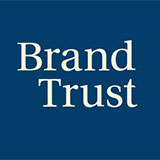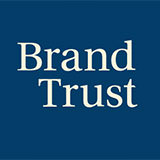
Consumers decide to trust when they can be sure that a company will keep its brand promises at all times.
What we can learn from trustworthy brands
Article
12. May 2014 ▪ Reading time: approx. 3:10 min.
In 1925, Henry Ford told his customers they could have a Ford car in any color they liked – so long as it was black. Today, we have nearly unlimited choices: Universal, metallic, or flip-flop paint job? Canyon-beige, moonrock blue, or misano red? Or: Which of the 87,000 possible coffee combinations available at Starbucks would you like? We are constantly faced with a chaotic variety of choices. And let's be honest: Who is going to keep on top of 5,000 brand contacts per day, not to mention make a decision? Too many alternatives mean unpredictable risk and uncertainty, because it is impossible to rationally check all available information. So, in times of saturated markets, there is only one thing left to do: trust.
And as if this exorbitant complexity in the market wasn't enough, the public media bombard us every day with negative headlines and crises that shake our basic trust in society. We read about banking and economic crises or food scandals and wonder: Who can we trust at all?
The consequence: We consumers are becoming more and more distrustful, even though we have a distinct need for security, especially during these times of crisis. But there are a few brands that seem to escape this trend of trust erosion. How do they manage to gain trust despite all these contrary external factors? And how does brand trust evolve in the first place?
Trust is the linking of positive experiences with the brand
Brand trust is nothing more than the conviction that a company stands by its promises. That it delivers on its brand promise. Building brand trust does not happen over night, but often takes a year-long process of familiarization.
Before trust can be gained, an essential prerequisite must be fulfilled: we have to like the brand. We like a brand when we find that its values and benefit match our own values and needs. But that also means that brands, due to their identity and » positioning, cannot earn every consumer's trust. The attempt by strong brands to be liked by everyone equally is love's labor lost and leads the brand to pursue consumers instead of attracting them.
If we like a brand, however, we put it to the test: Is the first impression confirmed? Is the communicated brand promise kept? Do we feel a unique benefit that sets the brand apart from competing offers?
When these questions can be answered with "yes" due to repeated brand experiences, when the brand promise and the consumer's expectations are consistently and continuously fulfilled – without ifs, ands, or buts – then trust will develop over the course of years.
Trust is pre-sold revenue
When we finally trust a brand blindly, we no longer think. Trustworthy brands provide orientation and ease our buying decision, because we are no longer forced to look for alternatives. Then we are also more tolerant of higher prices and less susceptible to competing offers.
The Association for Consumer Research (Gesellschaft für Konsumforschung = GfK) found out that brand trust is one of the most important drivers of market share: » The higher the level of trust, the higher the proportion of regular customers, which make up 60 to 70 percent of revenue on average. So trust is nothing if not pre-sold revenue.
But what exactly should you do to build a strong, trustworthy brand?
The five secrets of success:
1. Be better: Trustworthy brands are winners. They are characterized by above average performance that overshadows the competition. If a brand can't do anything, nobody will ever expect anything from it, much less trust it. So before you even think about building trust, spend some time thinking about what your brand can really do. Use your successes and performances and keep on demonstrating them today and tomorrow and over and over, until your brand's competence is finally firmly rooted in people's minds.
2. Be different: Consumers now more than ever want individuality. Everything that is common and interchangeable seems to be worth less and is viewed critically. Nobody talks about average. The balanced middle is not interesting to anyone. Only those who stand out from the crowd through peak performances bundled by the clever use of the brand will be noticed and is interesting enough to be talked about.
3. Be consistent: Strong brands never lose direction or cross their credibility boundaries. They do nothing that is in any way contrary to the brand's values or positioning. Everything that could disturb the process of building trust is avoided: New core messages, logos, or slogans cause confusion and are not trustworthy. The more consistently you manage your brand, the more brand trust you will gain.
4. Be transparent: Strong, trustworthy brands communicate openly, honestly, and without contradiction. Particularly when companies are active in the social media, communication that allows for critical consumer questions and answers them is essential for building trust. So don't promise anything you cannot keep. Because with the growing significance of the internet, lies are quickly revealed. And such breeches of trust are punished quickly and permanently.
5. Be loyal: Unrequited love is painful. So do all you can to maintain your customers' trust that you took such pains to build. Show your customers that they are important to you. Take your fans seriously and take care of your regulars. Because true loyalty, positive reviews, independent references, or credible recommendations based on real peak performances are the most effective tools for sustainably increasing your company's success.
This article is an excerpt from the book contribution "Erfolg durch Vertrauen: Was wir von vertrauenswürdigen Marken lernen können" (Success through trust: What we can learn from trustworthy brands), which appeared in the book » No. 1 Brands – die Erfolgsgeheimnisse starker Marken (The success secrets of strong brands). The complete version contains practical examples and more in-depth information on the topic.













